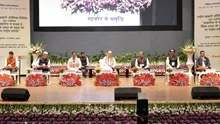
Prof. Charles Asadu, Coordinator, NISS South East Zone, stated this at a one-day seminar in Nsukka themed "Capacity Building for Registered Soil Scientist on New Innovations and Advances in Soil Science." The institute organized the training as part of its efforts to promote agriculture in the country.
He stated that in a changing world, soil scientists could not be overlooked since farmers rely on them to increase their productive capacity and efficiency. "Today, participants were taught how to use machine learning to predict soil properties and optimize agricultural productivity."
as well as the development of new organic amendments derived from sustainable plant sources, the use of environmentally friendly agricultural technologies, and how mycorrhizal fungus might increase soil health and plant production." Participants who are registered soil scientists, according to the coordinator, are expected to apply the knowledge obtained in the workshop to instruct farmers and extension agents in their communities. "One of NISS's objectives is to assist the Federal Government in achieving food security," he explained.
In highlighting the institute's activities in the Southeast zone, Asadu stated that farmers and extension agents in the area have profited greatly from NISS' numerous training programmes. Speaking on the application of machine learning to predict soil qualities, Prof. Peter Ezeaku, Dean, Faculty of Agriculture, University of Nigeria, Nsukka (UNN), stated that the goal was to maximize agricultural productivity. Ezeaku observed that the most prevalent elements influencing machine learning performance could aid in the selection of the best approach for a specific research task in soil investigation.
"The comparative impact on machine learning techniques and their parameters demonstrated that they can increase or decrease overall soil analysis accuracy." "Because machine learning technologies are having a significant impact in agriculture, any country that wants to improve its agriculture would be foolish to ignore them," Ezeaku added. Dr. Innocent Onyekwere, Assistant Director, Farming System Research Programme, National Root Crops Research Institute, Umudike, Abia, recommended farmers to employ organic amendments for crop production when speaking on the development of eco-friendly agricultural technology.
He stated that the first step in organic amendment (manure) was to determine the nutrient requirements for the growth and yield of such crop, which was followed by laboratory analysis of the organic amendments and soil that the crop would grow on, after which the quantity to be applied was determined before application. "If properly followed, these steps will yield excellent results for long-term soil fertility and increased crop yield."
Among the benefits of organic amendments, according to the Assistant Director, are that they are free of methane, that they protect plants from disease-causing viruses, and that they work as a buffer against drought and flood. According to Onyekwere, Eco-friendly Agricultural Technology is a clean technology that employs green renewable energy to transform plant leftovers to organic amendments with zero carbon emissions. "Eco-friendly agricultural technology can help preserve the environment by reducing harmful waste and increasing energy efficiency."
"Recycling, renewing, and reusing bio-degradable content waste such as plant-based materials to decomposed and convert organic amendments are examples of Eco-friendly agricultural technology," he stated. Some participants praised NISS for conducting the session, which provided them with knowledge on how to utilise new agricultural advances in their area. Participants agreed to apply what they learned at the event to train farmers and extension agents in their respective communities. They stated that this would justify NISS's goal in conducting the session and allow them to offer their own quote to the country's food security.











